A tour of the Tour's birthplace
The Tour de France may have started over 100 years ago, but you can still stroll round Paris and see...
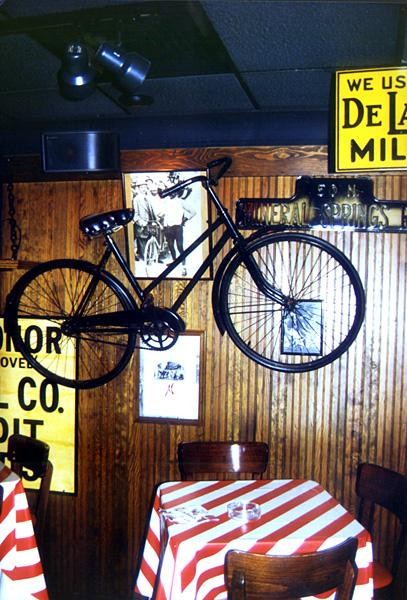
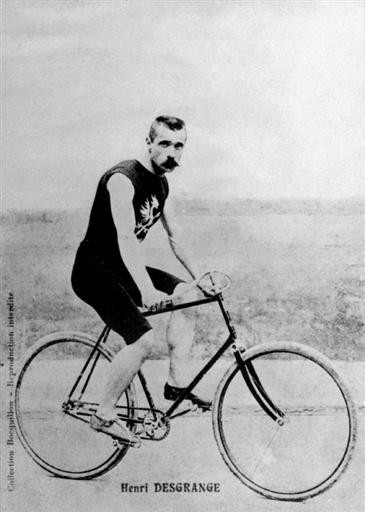
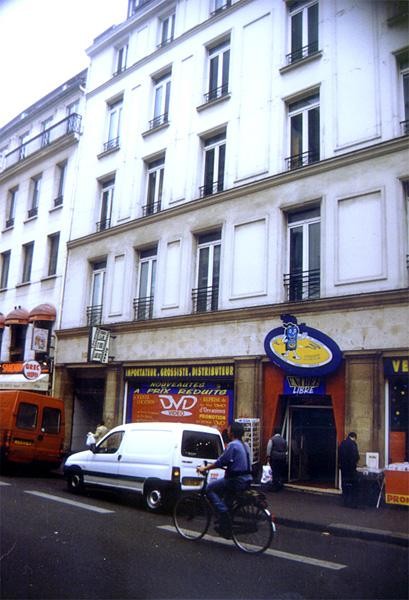
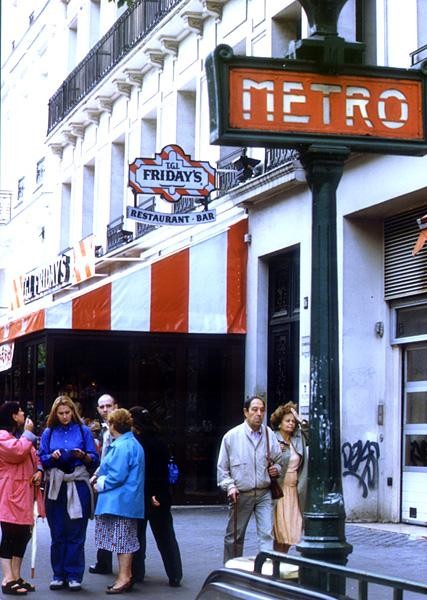
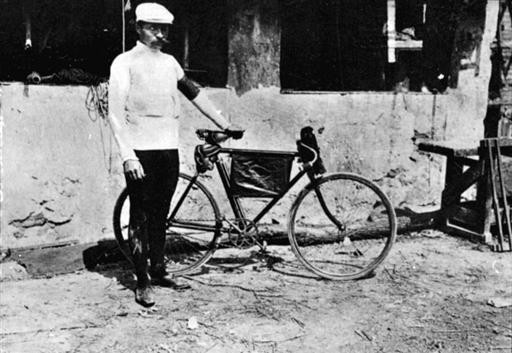
Tales from the peloton, June 23, 2006
The Tour de France may have started over 100 years ago, but you can still stroll round Paris and see the offices and cafe where the idea of a 'Tour de France' was born. Les Woodland is your tour guide and historian.
Going to Paris for the Tour? Then make the most of it and walk with the ghosts of cycling history. Here's how…
First of all, you need one of the many métro stations. The network map could be clearer but you should be able to work it out. The lines are numbered and each has a different colour on the map. You get on the right train by looking for the line number and then the platform that shows the station at the end of the line.
You want number 9, direction Pont de Sèvres, and you get out at Montmartre. Now look for the rue du Faubourg Montmartre, which is the turning from the main road right by the station exit.
Walk down the slope until you get to number 10, on the right-hand side. It doesn't look much - just a video shop on the ground floor when I was last there and some doors to the offices above, set back from the pavement. It stands opposite the Théatre de Nord-Ouest and two doors down from the Palace theatre.
But back in 1903 the two floors above the entrance to number 10 belonged to L'Auto. It wasn't a successful paper then and the editor, Henri Desgrange, wasn't good at coming up with ideas. In fact he was so bad that the paper was close to going broke only a few years after it had started. There seemed no way Desgrange could carry out his boast that he would "nail the beak shut" of his rival editor at Le Vélo, a bad-tempered but more imaginative man called Pierre Giffard. And so on the higher of the two floors in 1903 there was a crisis meeting round a big black table.
Get The Leadout Newsletter
The latest race content, interviews, features, reviews and expert buying guides, direct to your inbox!
Just a handful of men sat round the table while, downstairs, the accountant Victor Goddet fretted over red ink in the accounts. Desgrange had been harassed by the paper's owners, a consortium of industrialists who had fallen out with Le Vélo after Giffard had backed (for them) the wrong side in a political scandal involving the army, the Church, politicians and crooked courts. The industrialists, including Edmond Michelin of the tyre company, wanted to know why neither the circulation nor their profits were going up.
Desgrange, as ever, had no idea of his own. He went round the table demanding others help him out. They didn't have much more of an idea either and the youngest man there, a 26-year-old rugby writer who also rode a bike, felt terrified he'd do no better. As the first thing that came into his head, and for fear of staying silent otherwise, Géo Lefèvre blurted out: "What if we held a race on the road, like the six-days on the track?"
In those days, papers competed for circulation by organising ever bigger, more outrageous races. That was how Bordeaux-Paris was born and why Giffard had run Paris-Brest-Paris. Those were long enough but Giffard's idea of a race that would go right round France was so outrageous that it couldn't be topped. It was also why Lefèvre immediately regretted suggesting it.
To his horror, nobody said anything. He had made a fool of himself. And then Desgrange said thoughtfully: "If I understand you right, petit Géo, you're suggesting a Tour de France?"
It wasn't the first time the phrase had been used. Cyclists had employed it for round-France record rides and it had turned up in the new sport of car racing. Desgrange in fact was keener on car racing than on bicycles and he saw it as the future of sport, society and newspapers. That was why he'd called his paper L'Auto, because it reeked of modernity.
There are still Tours de France in other sports but Desgrange, without realising it, had first used it in the sense that we now know it. But he wasn't a man to risk his reputation on a wild idea (he stayed away from the first Tour for fear of being associated with a disaster) and so, looking at his watch, he announced it lunch time and invited Lefèvre to leave the building with him and turn left up the slope that you've just walked down.
Before you go back the same way, however, look back over your shoulder. The building behind you was where L'Auto's modern replacement, L'Équipe, was founded. Other than urging Frenchmen to go out and bayonet Germans in the first world war, Desgrange had always steered clear of politics. In the second war, however, L'Auto not only continued publishing under the German occupation but published articles that were far from disapproving of the occupiers.
Because of that, the paper's front door was literally nailed shut when French troops liberated Paris under General Leclerc and L'Auto's belongings, along with the Tour de France itself, were sequestrated by the state. Only when paper rationing ended after the war was Jacques Goddet, Victor Goddet's son and brother of the man who sold L'Auto to a German consortium, allowed to start a replacement. A condition was that L'Équipe would never use the yellow paper that L'Auto had used and which had matched so nicely the Tour leader's jersey.
OK, that bit of history-jumping behind us, stroll back up the slope towards the métro station again. When you get to the top, turn right and there, by the station exit, you'll see a restaurant called TGI Friday's.
It's changed names several times over the years and in 1903 it was known as the Taverne Zimmer. That was where Desgrange took Lefèvre for lunch. The modern manager doesn't know just where they sat but he has dedicated one wall to a little shrine to the event.
Neither Desgrange nor Lefèvre mentioned the idea of a Tour de France until they got their coffees at the end of the meal. Desgrange then asked Lefèvre to go over his thoughts again and, other than a few questions, said nothing except that it was "interesting" and that he'd have a word with Victor Goddet.
Desgrange was buck-passing. He thought Goddet would laugh and point at the disastrous position of the books. Then all Desgrange had to do was tell Michelin and the others that he'd had a good idea (he quickly shifted Lefèvre out of the limelight when the Tour proved a success) but that Goddet had rejected it.
To his surprise, Goddet beamed, pointed to the heavy steel safe and told Desgrange to help himself to all the money he needed. It was the one good idea Goddet had heard and, beat-or-bust, he'd put his money and his reputation behind it. The Tour de France was born and you could do worse than drink a toast as you sit where those men sat that day and talked over an idea which changed your life.